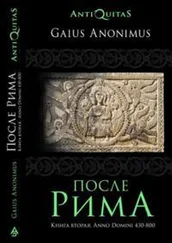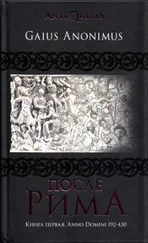Julius Vogel - Anno Domini 2000; or, Woman's Destiny
Здесь есть возможность читать онлайн «Julius Vogel - Anno Domini 2000; or, Woman's Destiny» — ознакомительный отрывок электронной книги совершенно бесплатно, а после прочтения отрывка купить полную версию. В некоторых случаях можно слушать аудио, скачать через торрент в формате fb2 и присутствует краткое содержание. Издательство: Иностранный паблик, Жанр: foreign_sf, literature_19, foreign_antique, foreign_prose, на английском языке. Описание произведения, (предисловие) а так же отзывы посетителей доступны на портале библиотеки ЛибКат.
- Название:Anno Domini 2000; or, Woman's Destiny
- Автор:
- Издательство:Иностранный паблик
- Жанр:
- Год:неизвестен
- ISBN:нет данных
- Рейтинг книги:4 / 5. Голосов: 1
-
Избранное:Добавить в избранное
- Отзывы:
-
Ваша оценка:
- 80
- 1
- 2
- 3
- 4
- 5
Anno Domini 2000; or, Woman's Destiny: краткое содержание, описание и аннотация
Предлагаем к чтению аннотацию, описание, краткое содержание или предисловие (зависит от того, что написал сам автор книги «Anno Domini 2000; or, Woman's Destiny»). Если вы не нашли необходимую информацию о книге — напишите в комментариях, мы постараемся отыскать её.
Anno Domini 2000; or, Woman's Destiny — читать онлайн ознакомительный отрывок
Ниже представлен текст книги, разбитый по страницам. Система сохранения места последней прочитанной страницы, позволяет с удобством читать онлайн бесплатно книгу «Anno Domini 2000; or, Woman's Destiny», без необходимости каждый раз заново искать на чём Вы остановились. Поставьте закладку, и сможете в любой момент перейти на страницу, на которой закончили чтение.
Интервал:
Закладка:
Hilda Fitzherbert worshipped her; and Mrs. Hardinge, childless and with few relations, loved and admired the girl with a strength and tenacity that made their official relations singularly pleasant.
"My dear Hilda," she said, "why do you look so disturbed, and how is it you are idle? It is rare to find you unoccupied."
Hilda, almost in tears, responded, "Dear Mrs. Hardinge, tell me, do tell me, what do you really think of Lord Reginald Paramatta?"
If Mrs. Hardinge felt any surprise at the extraordinary abruptness of the question, she did not permit it to be visible.
"My dear, the less you think of him the better. I will tell you how I read his character. He is unstable and insincere, capable of any exertion to attain the object on which he has set his mind; the moment he has gained it the victory becomes distasteful to him. I have offered him the command of our London forces to please you, but I tell you frankly I did so with reluctance. Nor would I have promoted him to the post but that it has long ceased to possess more than traditional importance. Those chartered sybarites the Londoners can receive little harm from Lord Reginald, and the time has long passed for him to receive any good. Such as it is, his character is moulded; and professionally he is no doubt an accomplished officer and brave soldier. Besides that, he possesses more than the ordinary abilities of a man."
Hilda looked her thanks, but said no more than "Your opinion does not surprise me, and it tallies with my own judgment."
"Dear girl, do not try to dispute that judgment. And now to affairs of much importance. I have come from the Emperor, and I see great difficulties in store for us."
Probably Hilda had never felt so grateful to Mrs. Hardinge as she did now for the few words in which she had expressed so much, with such fine tact. An appearance of sympathy or surprise would have deeply wounded the girl.
"Dear mamma," she said—as sometimes in private in moments of affection she was used to do—"does his Highness still show a disinclination to the settlement to which he has almost agreed?"
"He shows the most marked disinclination, for he told me with strong emotion that he felt he would be sacrificing the convictions of his race."
The position of the Emperor was indeed a difficult one. A young, high-spirited, generous, and brave man, he was asked by his Cabinet to take a step which in his heart he abhorred. A short explanation is necessary to make the case clear. When the Imperial Constitution of Britain was promulgated, women were beginning to acquire more power; but no one thought of suggesting that the preferential succession to the direct heirs male should be withdrawn.
Meanwhile women advanced, and in all other classes of life they gained perfect equality with regard to the laws of succession and other matters, but the custom still remained by which the eldest daughter of the Emperor would be excluded in favour of the eldest son. Some negotiations had proceeded concerning the marriage of the Emperor to the daughter of the lady who enjoyed the position of President of the United States, an intense advocate of woman's equality. She was disposed, if not determined, to make it a condition of the marriage that the eldest child, whether son or daughter, should succeed. The Emperor's Cabinet had the same view, and it was one widely held throughout the Empire. But there were strong opinions on the other side. The increasing number of women elected by popular suffrage to all representative positions and the power which women invariably possessed in the Cabinet aroused the jealous anger of men. True, the feeling was not in the ascendant, and other disabilities of women were removed; but in this particular case, the last, it may be said, of women's disabilities, a separate feeling had to be taken into account. The ultra-Conservatives throughout the Empire, including both men and women, were superstitiously tenacious of upholding the Constitution in its integrity and averse to its being changed in the smallest particular. They felt that everything important to the Empire depended upon the irrevocable nature of the Constitution, and that the smallest change might be succeeded by the most organic alterations. The merits of the question mattered nothing in their opinion in comparison with the principle which they held it was a matter of life and death not to disturb.
It was now proposed to introduce a Bill to enable the Emperor to declare that the succession should be to the eldest child. The Cabinet were strongly in favour of it, and to a great extent their existence as a Government depended on it. The Emperor was well disposed to his present advisers, but, it was no secret, was strongly averse to this one proposal. The contemplated match was an affair of State policy rather than of inclination. He had seldom met his intended bride, and was not prepossessed with her. She was good-looking and a fine girl; but she had unmistakably red hair, an adornment not to his taste. Besides, she was excessively firm in her opinions as to the superiority of women over men; and he strongly suspected she would be for ever striving to rule not only the household, but the Empire. It is difficult to fathom the motives of the human mind, difficult not only to others, but to the persons themselves concerned. The Emperor thought that his opposition to placing the succession on an equality between male and female was purely one of loyalty to his ancestors and to the traditions of the Empire. But who could say that he did not see in a refusal to pass the necessary Act a means of escaping the distasteful nuptials? Mrs. Hardinge had come from a long interview with him, and it was evident that she greatly doubted his continued support. She resumed, "His Highness seems very seriously to oppose the measure, and indeed quite ready to give up his intended marriage. I wonder," she said, looking keenly at Hilda, "whether he has seen any girl he prefers."
The utter unconsciousness with which Hilda heard this veiled surmise appeared to satisfy Mrs. Hardinge; and she continued, "Tell me, dear, what do you think?"
"I am hardly in a position to judge. Does the Emperor give no reasons for his opposition?"
"Yes, he has plenty of reasons; but his strongest appears to be that whoever is ruler of the Empire should be able to lead its armies."
"I thought," said Miss Fitzherbert, "that he had some good reason."
"Do you consider this a good reason?" inquired Mrs. Hardinge sharply.
"From his point of view, yes; from ours, no," said Hilda gently, but promptly.
"Then you do not think that we should retreat from our position even if retreat were possible?"
"No," replied Hilda. "Far better to leave office than to make a concession of which we do not approve in order to retain it."
"You are a strange girl," said Mrs. Hardinge. "If I understand you rightly, you think both sides are correct."
"I think that there is a great deal to be said on both sides, and this is constantly the case with important controversies. Between the metal and the flint the spark of truth is struck. I should think it no disgrace to be defeated on a subject about which we could show good cause. I might even come to think that better cause had been shown against us after the discussion was over; but to flee the discussion, to sacrifice conviction to expediency—that would be disgraceful."
"Then," said Mrs. Hardinge, with some interest, "if the Emperor were to ask your opinion, you would try to persuade him to our side?"
"Yes and no. I would urge strongly my sense of the question and my opinion that it is better to settle at once a controversy about which there is so much difference of opinion. But I should respect his views; and if they were conscientious, I should not dare to advise him to sacrifice them."
An interruption unexpected by Miss Fitzherbert, but apparently not surprising to Mrs. Hardinge, occurred. An aide-de-camp of the Emperor entered. After bowing low to the ladies, he briefly said, "His Imperial Majesty desires the presence of Miss Fitzherbert."
Читать дальшеИнтервал:
Закладка:
Похожие книги на «Anno Domini 2000; or, Woman's Destiny»
Представляем Вашему вниманию похожие книги на «Anno Domini 2000; or, Woman's Destiny» списком для выбора. Мы отобрали схожую по названию и смыслу литературу в надежде предоставить читателям больше вариантов отыскать новые, интересные, ещё непрочитанные произведения.
Обсуждение, отзывы о книге «Anno Domini 2000; or, Woman's Destiny» и просто собственные мнения читателей. Оставьте ваши комментарии, напишите, что Вы думаете о произведении, его смысле или главных героях. Укажите что конкретно понравилось, а что нет, и почему Вы так считаете.












